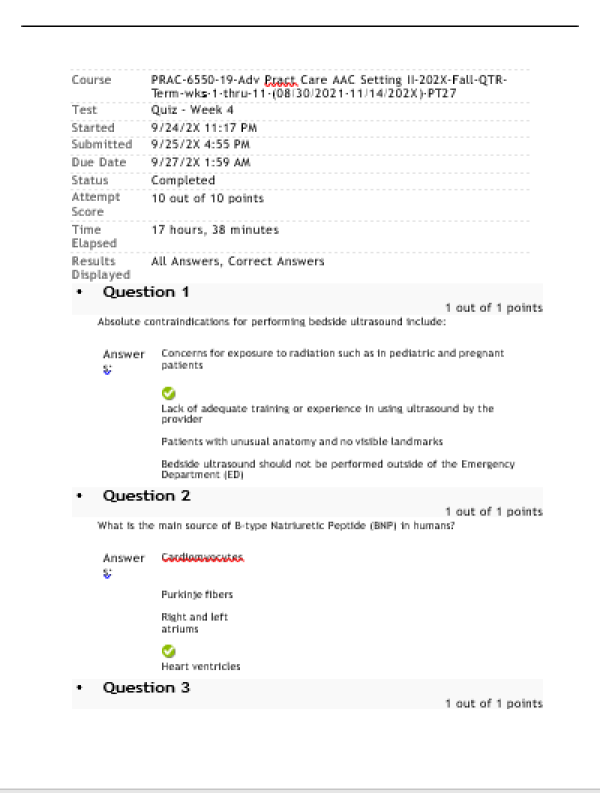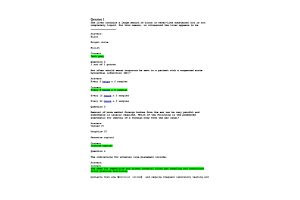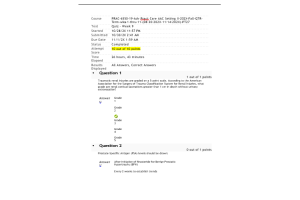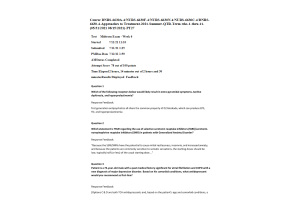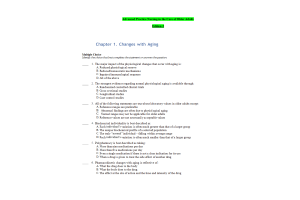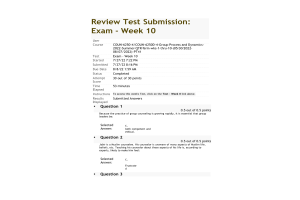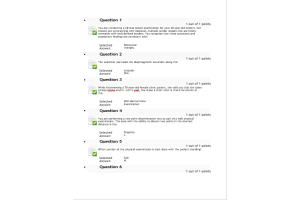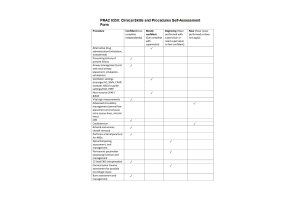PRAC 6550-19 Week 4 Quiz (100% Correct)
- $20.00
1.
Question: Absolute contraindications for
performing bedside ultrasound include:
2.
Question:
What is the main source of B-type Natriuretic Peptide (BNP) in humans?
3.
Question: On ultrasound, fluid, liquid, or
water-like substances are considered anechoic. They reflect very few sound
waves and allow most of the energy to pass through, resulting in an on-screen
image that appears .
4.
Question: Beck’s triad can be used to
diagnose a severe pericardial tamponade. Beck’s triad consists of:
5.
Question: Waveform capnography can be used to
monitor ventilated patients and assess the effectiveness of CPR. The following
is an example of a normal capnography waveform:
6.
Question: What initial test should a provider
order in a patient presenting with Vertigo?
7.
Question: A patient in the intensive care
unit requires frequent monitoring for acid-base abnormalities due to a severe
metabolic acidosis. Which of the following laboratory tests can be sent instead
of an arterial blood gas?
8.
Question: Human Papilloma Virus (HPV) is
known for causing cervical cancer, but it can also cause head and neck cancers.
Which of the following laboratory test should the provider order from a
specimen in patient with suspected HPV related head and neck cancer?
9.
Question: Removal of more medial foreign
bodies from the ear can be very painful and anesthesia is usually required.
Which of the following is the preferred anesthetic for removal of a foreign
body from the ear canal?
10. Question: Thyroid hormones are known to influence cholesterol and triglyceride levels. Which of the following patients would you expect to have elevated cholesterol and triglyceride levels?
